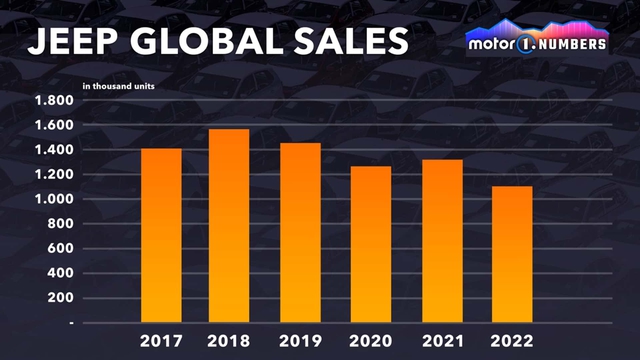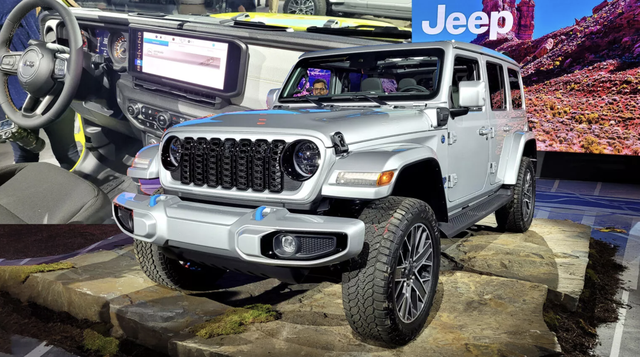After the Covid-19 pandemic, the automobile manufacturing and trading industry has experienced significant fluctuations. Delays in adapting to the shift to electric vehicles combined with changes in the industry have affected Jeep sales growth in recent years.
Facing the spread of the multi-purpose SUV trend, which is increasingly accepted by customers, Jeep’s diverse line of SUVs has been considered a “gold mine” of Fiat Chrysler Automobiles (FCA) group since the company launched. was established in 2014.

During the initial phase of the FCA merger in 2012, Jeep contributed 17% of the group’s global sales. At that time, this car company sold a total of 702,000 cars. Stimulated by the global SUV craze, Jeep sales increased to 1.05 million vehicles after two years and continued to climb to 1.26 million vehicles in 2015. The peak of development was reached when sales reached 1.57 million vehicles in 2015. Three years later, the American brand accounted for 1/3 of FCA’s total sales globally.
Target missed
In June 2018, with notable growth, leaders at Jeep made a forecast that the automaker’s sales would double by 2022. Mr. Mike Manley, head of Jeep at the time, pointing out that globally, one in every 12 SUVs sold was from Jeep. The business target will reach from 2.7 million to 2.8 million vehicles. However, reality did not follow the expected scenario and was completely contrary to Jeep’s goals. In 2022, the company’s car sales only reached 1.11 million units globally.

During the period from 2018 to 2022, Jeep’s production and business activities have faced many difficulties. In 2019, Jeep had to continuously delay the introduction of new models. In 2020, the outbreak of the Covid-19 pandemic combined with supply chain disruptions, the merger with PSA in 2021 and the increasing popularity of electric cars during the year 2022… all have directly contributed to affecting Jeep sales.
Lowest sales since 2014
With only 1.11 million vehicles sold in 2022, this year saw Jeep’s lowest sales since 2014. Compared to the previous year, Jeep vehicle sales worldwide decreased by about 13%. This number is even lower than the total number of Jeep cars sold in 2020 – during the Covid-19 outbreak (about 1.23 million vehicles). The main reason is said to stem from the limitation of Jeep’s product range. The American car company lacks new car lines and cannot keep up with the trend of converting to electric cars.

During the previous year, most of Jeep’s business in North America was based on established models. Cherokee was launched in 2013, Renegade was launched in 2014, Compass was introduced in 2016, and Wrangler appeared in 2017. This is also the year the new generation of the Grand Cherokee was launched.
In addition, the development of electric SUVs has placed competitive pressure and caused a brand focusing on SUVs like Jeep to face a loss of market share. In the previous year, Jeep’s sales in the US and Canada decreased by 11%, these two markets accounted for 67% of global sales.

The Latin American market – Jeep’s second largest market, recorded a decrease of 6%, mainly due to decreased sales of the new Renegade and Jeep Commander. Meanwhile, in Europe, the loss of Commander distribution led to double-digit sales declines for the Renegade (down 23%) and Compass (down 16%).
Industry experts say that to recover the market, Jeep needs to change and introduce electric cars to the market. About 5 years ago, many people wanted to own an SUV, however, today the demand for these vehicles is still quite high. However, in many markets, the transition to electric SUVs is happening strongly and is popular.
Source: thanhnien.vn
